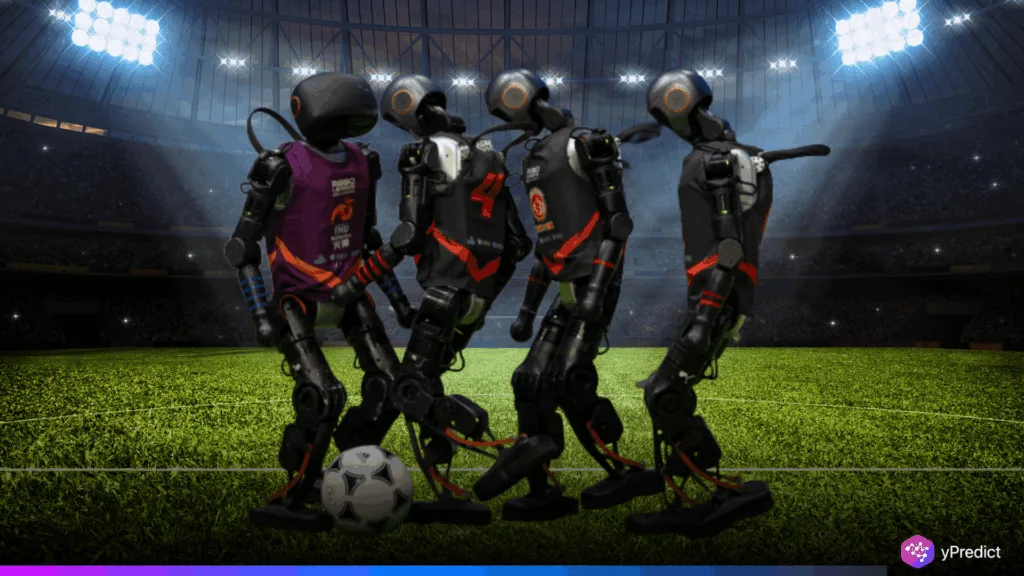
China has launched its first humanoid robot soccer league in Beijing, sparking global curiosity. The contest features AI-driven robots with the agility and awareness of a five- to six-year-old child. These bots, designed by Booster Robotics, offer a fun yet futuristic twist on traditional sports. Cheng Hao, the founder, thinks these machines will eventually compete against professional teams. Thus, the event has blended humor, creativity, and lofty engineering objectives, from bots stumbling on the field to being carried off.
Humanoid Robot Soccer League Kicks Off With Style
The humanoid robot soccer league, backed by Booster Robotics, had its thrilling debut in Beijing this week. Robots with cognitive abilities similar to those of children were observed walking, kicking, and occasionally toppling during games. Cheng Hao underlined that every fall contributes to the learning process and enhances the coordination and movement of the bots.
Additionally, the incident quickly went viral on the internet, with pictures of tiny robots playing and colliding going viral. In one widely shared video, a bot lost its balance and was carried off on a stretcher. Collin Rugg, co-owner of Trending Politics, shared the moment on X, calling it “way more entertaining than regular soccer.” His post increased public interest and generated amusing discussions regarding the future of robot league games.
Cheng gave an explanation of this innovation’s concept. “We chose football to motivate students and developers to bring algorithms into real-world AI robotics,” he said. “It’s also the perfect way to show off stable walking, quick decisions, and collision endurance.”
AI Robotics Drive Bold Future for Robot League
Booster Robotics claims this is just the beginning. The business intends to quickly update the bots and soon put adult human teams to the test. Newer models are already being tested, but the current models only show basic mobility and intelligence. Additionally, these improved bots seek to integrate advanced movement with quicker decision-making.
Furthermore, more general AI robotics applications are tested in the Robot League. Developers are using game data to train the AI models for possible uses in disaster recovery, delivery, and other domains. Furthermore, the league has sparked global interest from researchers, tech companies, and sports technology enthusiasts.
Will You Cheer for Robots Next?
I think this league is a great way to combine sports and science. It’s an enjoyable approach to advancing AI robotics outside of labs. Additionally, it encourages young people to investigate robotics by means of gamified education. The idea combines education and entertainment in a genuinely futuristic way. It will become increasingly difficult to distinguish between a tech demo and actual competition as robot skills advance. Do you think you’ll support bots in the future?






